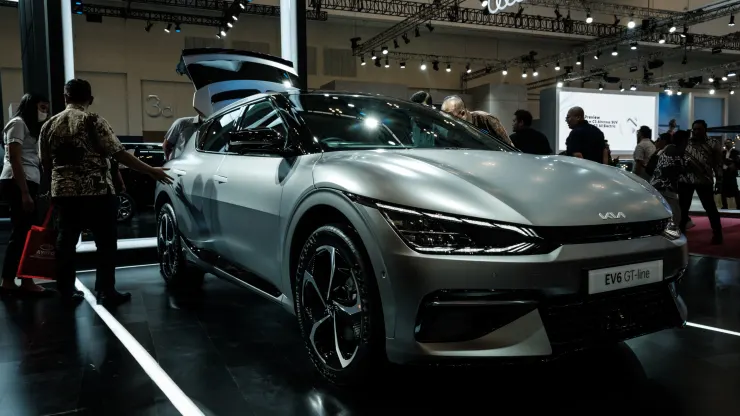Indonesia EV ambitions could boost investments in Southeast Asia.

The country’s EV-friendly policies have attracted global investors, but they may also boost investment in Southeast Asia’s automotive industry.
Copper, nickel, cobalt, and bauxite are abundant in the Southeast Asian country, which is essential for the manufacture of batteries for electric vehicles.
A ban on exports of certain metals and minerals has been implemented by Indonesia in order to attract investors and manufacturers.
The country’s EV-friendly policies have attracted global investors, but they may also boost investment in Southeast Asia’s automotive industry.
Anindya Novyan Bakrie, CEO and president director of Bakrie & Brothers, an Indonesian conglomerate whose electric vehicle unit VKTR manufactures electric buses and parts for electric vehicles, believes Indonesia is the “gateway” to the rest of ASEAN.
Its copper, nickel, cobalt, and bauxite resources are essential for making electric vehicle batteries. Based on a report by the ASEAN Briefing, Indonesia is the world’s largest nickel exporter, with 22% of world reserves.
As a global hub for electric vehicle supply chains, Indonesia courts companies like Tesla.
EVs require a lot of natural resources, which makes Indonesia so attractive… and it’s a great place for EV investments, particularly after a nickel ore ban and a government that’s calling for the beneficiation of its natural resources to spur economic growth,” said Koketso Tsoai, automobiles analyst at BMI Fitch Solutions.
In an effort to attract investors and manufacturers in need of these materials, Indonesia banned exports of certain metals and minerals.
ASEAN’s 2022 investment report noted that EV battery production accounted for a significant share of foreign direct investment in the region between 2019 and 2021, especially in Indonesia, Malaysia, and Thailand.
The country still faces obstacles in boosting vehicle production despite its efforts.
“With Thailand’s long-established export-oriented automotive industry, it will be difficult for Indonesia to replace it as a regional vehicle production hub. Nishita Aggarwal, automotive analyst at EIU, said Indonesia will also face challenges from lower-cost producers like Vietnam and the Philippines.
